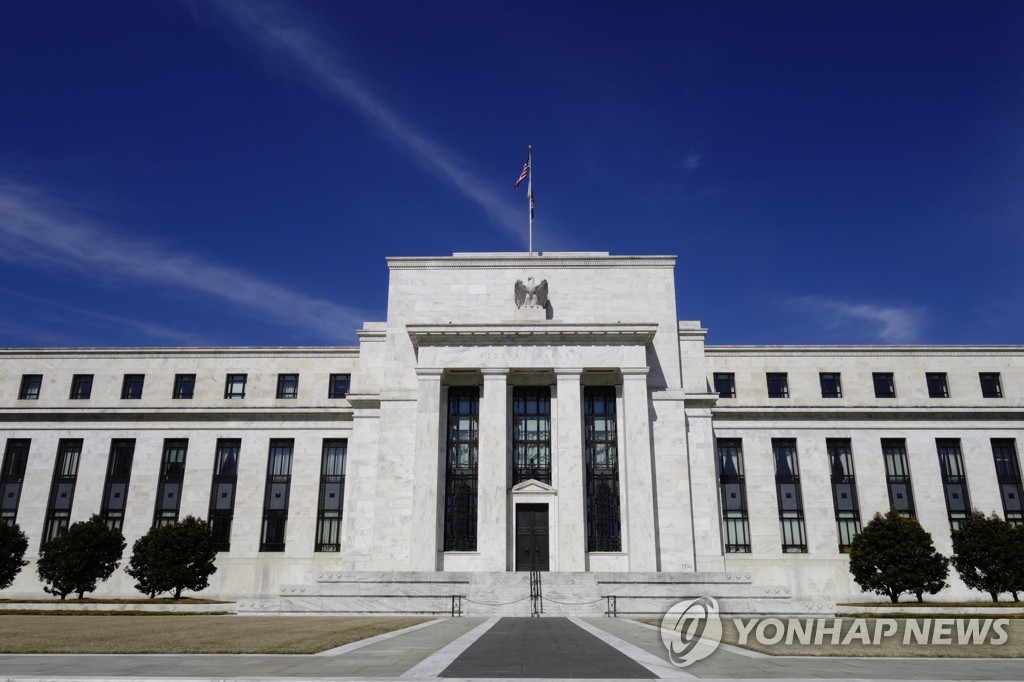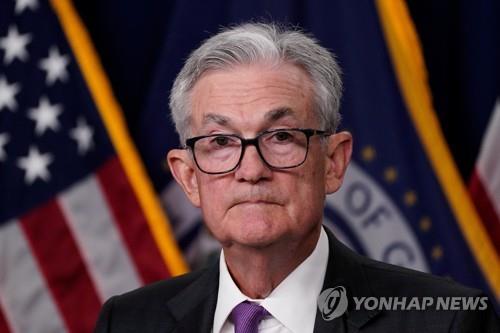 |
| ▲ This file photo, taken March 13, 2015, shows the Federal Reserve's headquarters in Washington, D.C. (Yonhap) |
 |
| ▲ In this Reuters photo, U.S. Federal Reserve Board Chairman Jerome Powell speaks during a news conference. (Yonhap) |
(2nd LD) FOMC-rate hike
(2nd LD) U.S. Fed raises key rate by 25 basis points to highest level since 2001
(ATTN: CHANGES dateline; ADDS more info paras 5-10)
SEOUL/WASHINGTON, July 27 (Yonhap) -- The U.S. Federal Reserve raised its benchmark lending rate by a quarter percentage point Wednesday (U.S. time), sending it to the highest level since 2001.
The rise increases the key rate to a range between 5.25 percent and 5.5 percent, while further widening the gap between the key rates of South Korea and the United States to an all-time high of 1.75-2.0 percentage points.
South Korea's central bank kept its benchmark rate frozen at 3.5 percent earlier this month.
Higher rates in the U.S. are feared to prompt money outflows from Asia's fourth-largest economy, which in turn may weaken the local currency against the dollar while putting upward pressure on inflation by making imports more expensive.
At its upcoming rate-setting meeting next month, the Bank of Korea (BOK) will likely decide whether it should follow suit to prevent possible headwinds, such as increasing household debt, or stand pat to spur the slow economic recovery.
Higher borrowing costs will likely strike a blow to Korean loaners as local banks' household loans logged an on-month increase for the third consecutive month in June.
In June, household debt jumped 6.4 trillion won (US$5.02 billion) from a month earlier, posting the biggest jump since September 2021, according to BOK data.
"When I attended a BOK meeting, I could see that the central bank's concerns over household debt are bigger than expected," said Cho Young-moo, a senior researcher at LG Business Research. "But because it needs to consider other factors, such as the economy, the BOK will be in a deadlock of not being able to raise or cut its key rate for more than six months."
On Tuesday, the BOK said the country's real gross domestic product -- a key measure of economic growth -- increased 0.6 percent on-quarter in the April-June period due to a positive net export achieved by a steeper fall in imports than exports.
But the estimated data showed that private consumption, government spending and investment all retracted, indicating a slow economic recovery.
Meanwhile, the International Monetary Fund slashed its 2023 economic growth outlook for South Korea to 1.4 percent on Tuesday, down from 1.5 percent forecast three months earlier.
The Bank of Korea, the South Korean central bank, lowered its growth outlook for the country from 1.6 percent in February to 1.4 percent in May.
(END)
(C) Yonhap News Agency. All Rights Reserved























